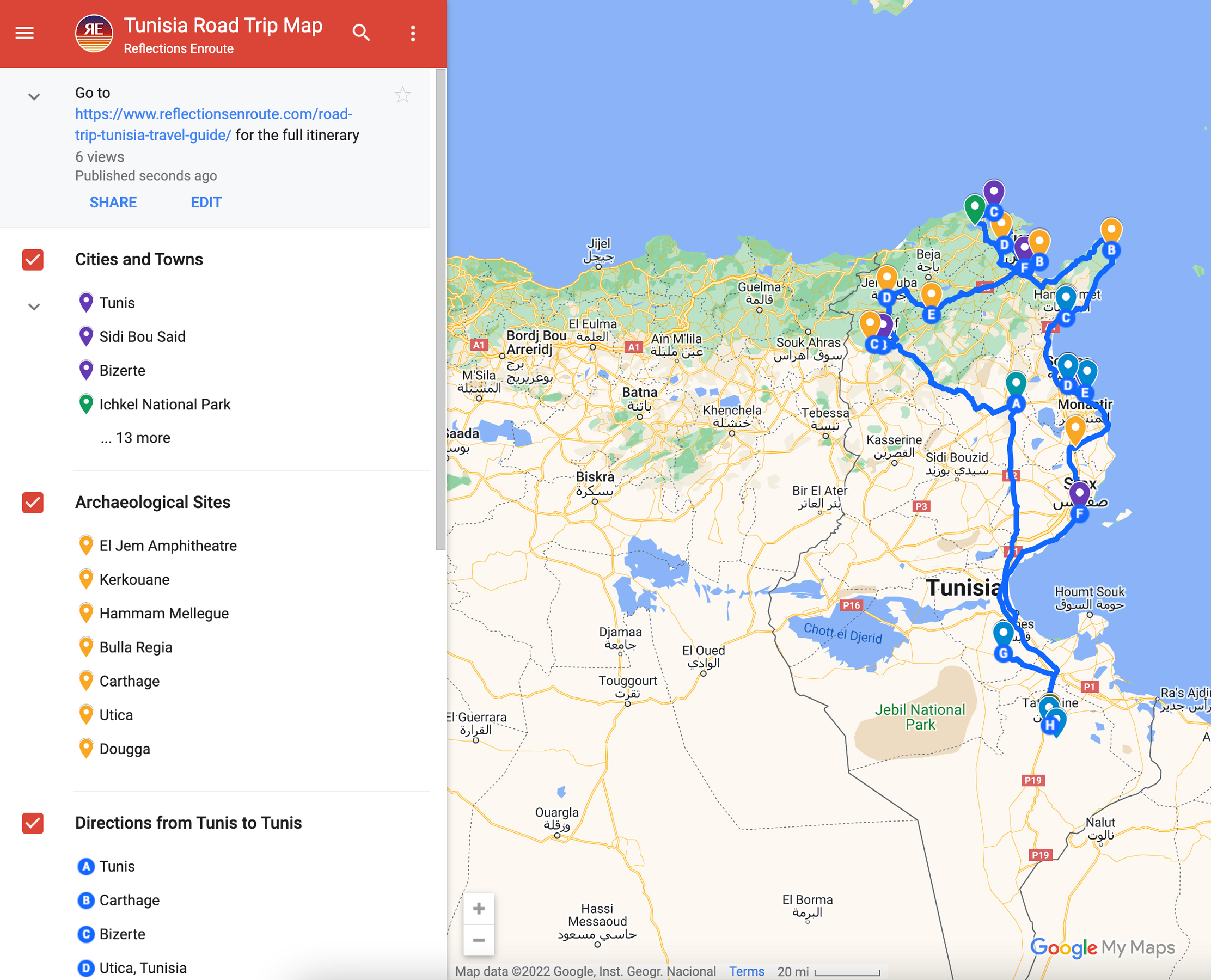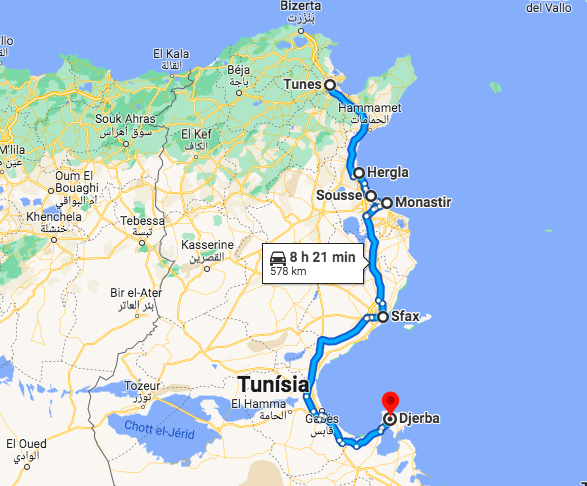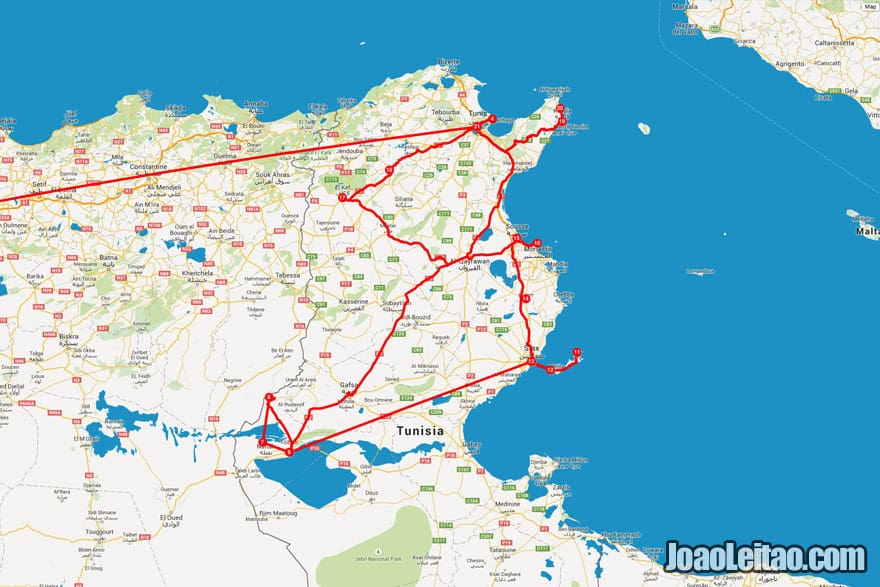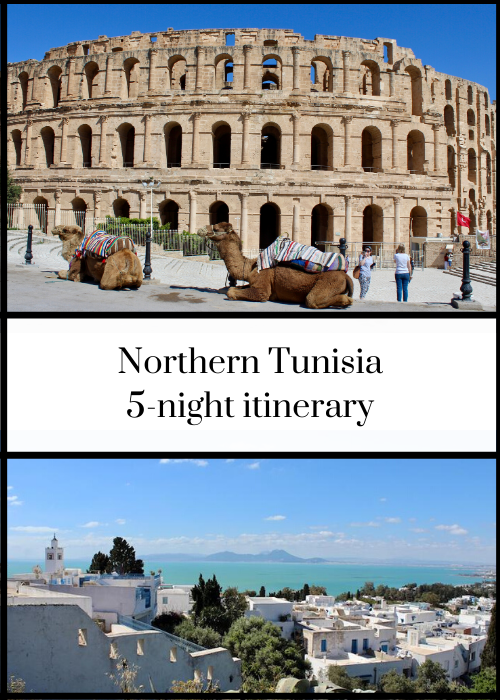Tunisia, a jewel of North Africa, is known for its rich history, stunning landscapes, and warm hospitality. If you’re looking to immerse yourself in a place that combines breathtaking beaches, ancient ruins, and a vibrant culture, Tunisia should be on your travel list. In this comprehensive guide, I’ll share a detailed travel itinerary to help you experience the best of Tunisia, along with personal anecdotes from my own journey.
Table of Contents
- Preparation for Your Trip
- Day 1: Arrival in Tunis
- Day 2: Explore Tunis and Carthage
- Day 3: Sidi Bou Said and Bardo Museum
- Day 4: Kairouan and its Mosque
- Day 5: The Sahara Desert Adventure
- Day 6: Matmata and Douz
- Day 7: Hammamet Beach Relaxation
- Travel Tips for Tunisia
- Pros and Cons of Traveling to Tunisia
- FAQs
Preparation for Your Trip
Before diving into the itinerary, let’s discuss some essential preparations. As Tunisia is a great mix of Mediterranean and Arab culture, being aware of local customs and travel essentials can enhance your experience.
Visa Requirements
Most travelers can enter Tunisia without a visa for stays of up to 90 days. Always check the latest travel regulations based on your nationality before traveling.
Best Time to Visit Tunisia
The ideal time to visit Tunisia is during spring (March to May) and fall (September to November) when the weather is pleasant. Summer can be hot, particularly in the southern regions.

What to Pack
- Lightweight clothing for warm weather
- Comfortable walking shoes
- Modest swimwear for beach visits
- Sun protection (sunscreen, hats)
- A reusable water bottle
Day 1: Arrival in Tunis
Welcome to Tunisia! Upon arriving in Tunis, the vibrant capital city, the first thing I noticed was the bustling activity around the streets. After settling into my hotel, I ventured out to experience the local cuisine.

Evening Exploration
Stroll through the Medina of Tunis, a UNESCO World Heritage site, where narrow winding streets are lined with shops selling handicrafts, carpets, and spices. Enjoy dinner at a local restaurant. I highly recommend trying the traditional couscous!
Day 2: Explore Tunis and Carthage
After breakfast, I set off to explore the historical sites of Carthage, just a short trip from Tunis.
Morning: Carthage Ruins
The ancient ruins of Carthage tell tales of a once-great civilization. Highlights include the Antonine Baths and the Punic Ports.

Afternoon: Visit Sidi Bou Said
Next, head to Sidi Bou Said, a charming village known for its blue and white architecture. Grab a coffee at Café des Nattes, and don’t forget to take that perfect Instagram shot!
Day 3: Sidi Bou Said and Bardo Museum
Today is all about delving deeper into Tunisian culture.

Morning: Bardo Museum
The Bardo Museum, home to one of the world’s largest collections of Roman mosaics, is a must-visit. The intricate art will leave you in awe.
Afternoon: Exploring Tunis
After the museum, I spent the afternoon exploring the heart of Tunis, visiting the Zitouna Mosque and the bustling market of Souk El Attarine.

Day 4: Kairouan and its Mosque
Next, I traveled to Kairouan, a city revered in the Islamic world.
Morning: Great Mosque of Kairouan
The Great Mosque of Kairouan, a stunning example of Islamic architecture, is the main attraction. Make sure to dress modestly and respect local customs.

Afternoon: Local Culture
Take a walk through Kairouan’s old town, sample some local pastries, and visit artisan workshops.
Day 5: The Sahara Desert Adventure
Today, I embarked on an unforgettable journey to the Sahara Desert.

Morning: Departure to Douz
After a hearty breakfast, the drive to Douz—the gateway to the Sahara—was filled with beautiful landscapes. Upon arriving, I hopped on a camel for a desert excursion.
Afternoon: Sunset in the Desert
The sunset in the Sahara is a sight to behold! We camped under the stars, enjoying a traditional Bedouin meal while sharing stories with fellow travelers.
Day 6: Matmata and Douz
On this day, I explored the unique troglodyte dwellings in Matmata.
Troglodyte Houses
The homes built into the earth are fascinating. I had the chance to meet a local family who welcomed us with mint tea and shared their lifestyle.
Afternoon: Back to Douz
Return to Douz, where I relaxed and enjoyed the local market before spending another night under the stars.
Day 7: Hammamet Beach Relaxation
The final leg of my journey was to the beautiful beaches of Hammamet.
Morning: Beach Time
After a week of exploration, lounging on the sandy beaches was a perfect way to unwind. The Mediterranean waters are refreshing!
Afternoon: Local Markets and Farewell Dinner
In the afternoon, I explored local markets, picked up some souvenirs, and finally enjoyed a farewell dinner with a view of the sunset over the sea.
Travel Tips for Tunisia
- Learn basic Arabic phrases to communicate with locals.
- Always carry small change for local markets.
- Respect local customs, especially when visiting religious sites.
Pros and Cons of Traveling to Tunisia
| Pros | Cons |
|---|---|
| Rich cultural heritage and history | Language barrier (limited English speakers) |
| Stunning landscapes and beaches | Some areas may be less developed for tourism |
| Delicious Mediterranean cuisine | Hot summers may be uncomfortable for sightseeing |
FAQs
What is the best way to travel around Tunisia?
Public transport, such as trains and buses, is available, but consider renting a car for more flexibility.
Is Tunisia safe for travelers?
Yes, Tunisia is generally safe for tourists, but always stay updated on travel advisories and follow local guidelines.
What currency is used in Tunisia?
The official currency is the Tunisian Dinar (TND). It’s best to exchange some money before your trip.
Can I drink tap water in Tunisia?
It’s advisable to drink bottled water, especially in rural areas.
In conclusion, Tunisia is a perfect destination for travelers seeking a blend of history, adventure, and relaxation. Following this itinerary, you will surely experience the country’s marvelous offerings. Happy travels!